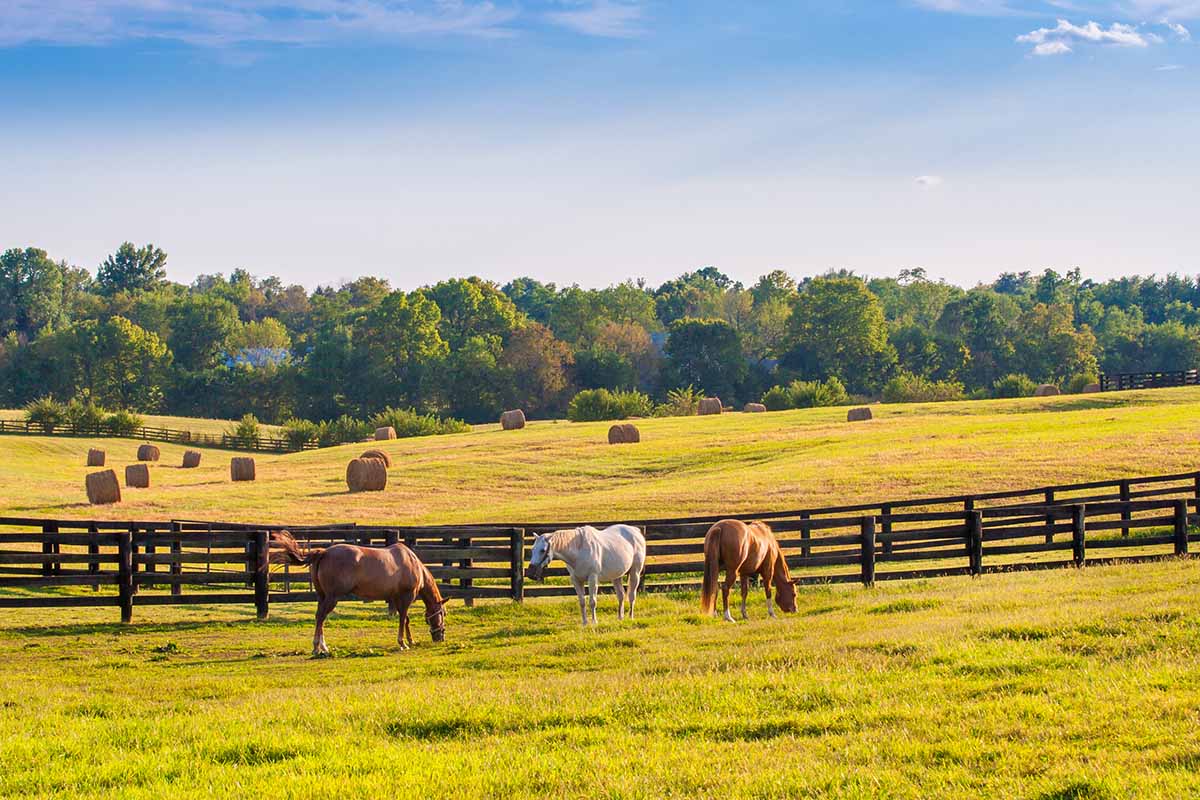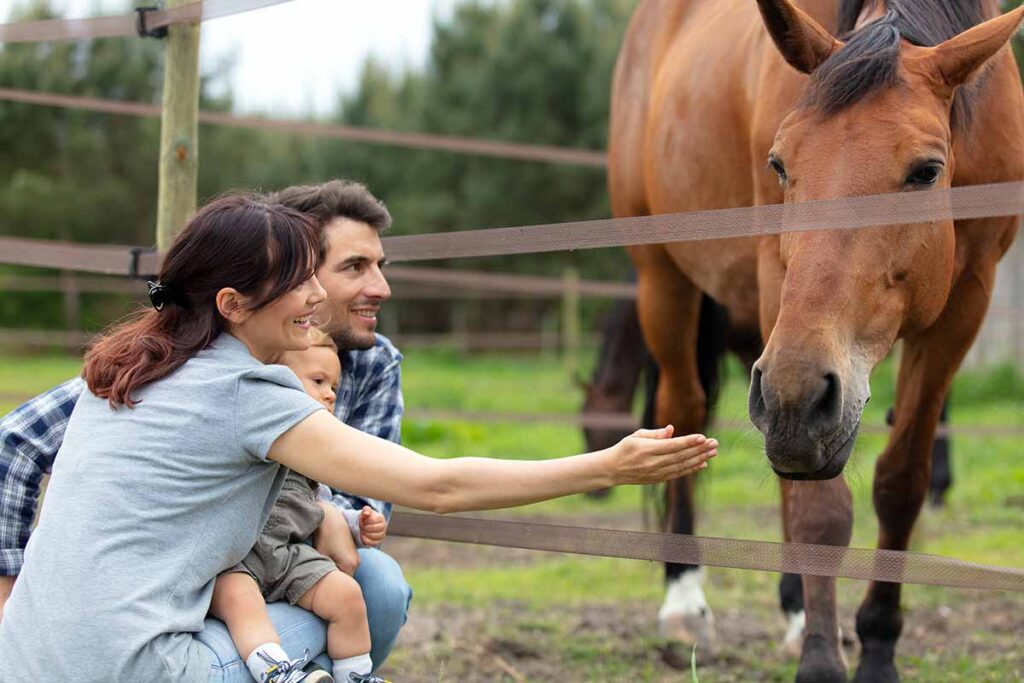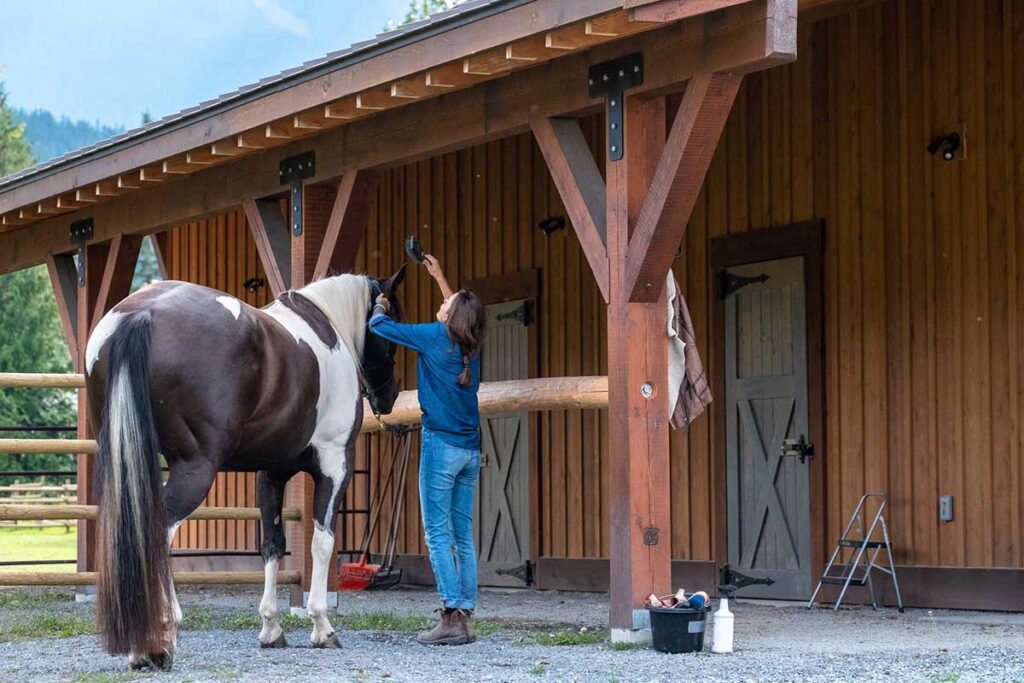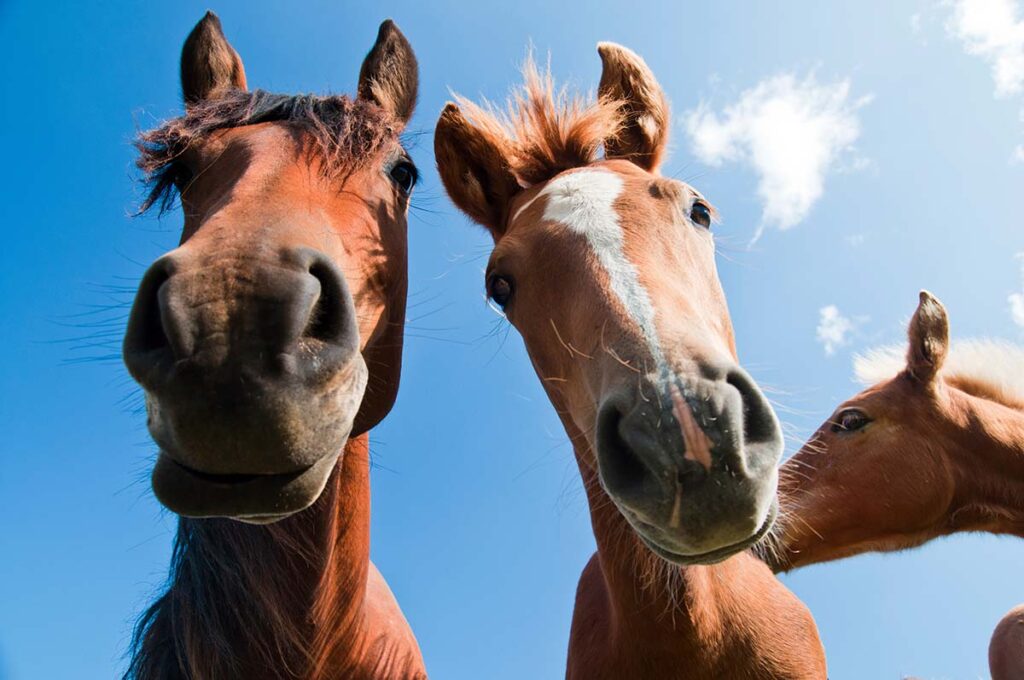No doubt about it, horse ownership is a big responsibility. Horses require daily attention and management to keep them healthy. And the horse world has no shortage of opinions and advice for how to best care for horses. Here’s a look at the basics of what every horse—no matter the breed or discipline—needs.
Shelter
Horses are naturally good at thermoregulation, meaning that—when left in a natural coat—they adapt well to weather changes. With that said, horses do need shade-producing shelter that also protects from the elements, such as wind and precipitation. Depending on the climate, appropriate horse shelters can vary from wind-blocking trees to three-sided, roofed sheds to stalls inside a barn.
Exercise and Turnout
Horses are designed to move, and when allowed to roam free, they cover many miles per day foraging. Daily exercise helps prevent digestive issues, such as colic, and improves a horse’s physical and mental fitness. Exercise can include turnout, longeing, and riding. Although not always possible, many horses do best with 24-hour turnout.
Feed and Nutrition
Forage is the basis of the equine diet. That can include pasture, grass hay, legumes (such as alfalfa), and beet pulp, which provide protein, carbohydrates, and fat. Most horses need to eat 1.5-2.0% of their body weight in hay/forage a day. That’s between 15-20 pounds of forage a day for an average-sized horse. Additionally, horses require vitamins and trace minerals, such as vitamin E, copper, zinc, and selenium, which might require supplementation via a concentrated horse feed or ration balancer. Equine diet requirements vary by region, so talk to your veterinarian or equine nutritionist to make sure your horse is getting the nutrients he needs.
Safe Fencing
Fence-related lacerations and injuries are some of the most common emergencies equine veterinarians see. We can’t literally wrap our horses in bubble wrap, but we can enclose them in the safest fences possible. Fences most suitable for horses include wood plank and no-climb woven-wire with openings spaced 2 inches wide or less.
Important! Barbed wire and horses don’t mix. The spiky “barbs” meant for tough-hided cattle can cause serious lacerations on horses that often push and lean against fencing.
Water
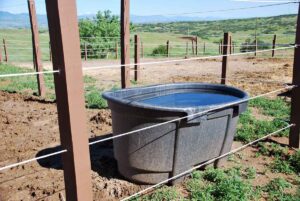
Hydration is imperative to a horse’s health, which is why round-the-clock access to clean, fresh water is so important. At minimum, a horse requires 0.5 to 1 gallon of water per 100 pounds of body weight. That means an average-sized horse needs at least 5-10 gallons of water per day.
Veterinary Care and Vaccination
Horses should see a licensed veterinarian at least once per year for a wellness exam. During this checkup, your veterinarian will take your horse’s vital signs; look at his teeth, ears, and eyes; and evaluate his overall health and nutritional program. He or she will also offer guidance for parasite control (deworming) that’s customized to address your horse’s individual needs.
A yearly exam is also a great opportunity for your horse to receive the four American Association of Equine Practitioners (AAEP)-recommended core vaccines:
- Eastern/western equine encephalomyelitis
- West Nile virus
- Tetanus
- Rabies
Hoof Care
A horse’s hooves grow constantly and require regular care to keep him comfortable and sound. Many horses can go barefoot or can work in removable boots, while others need shoes. Either way, a horse should have regular visits (every five to eight weeks) from a qualified farrier or barefoot trimmer.
Companionship
Horses are herd animals and as such require companionship, preferably from their own species. Research shows horses develop complex social networks within a herd and that horses isolated from herdmates develop signs of stress, including increased cortisol (a stress-related hormone) levels and develop stereotypes, such as fence walking and—in stallions—self-mutilation
Take-Home Message
These horse care must-haves are just the tip of the iceberg. Work with a veterinarian, farrier, and nutritionist to ensure you’re meeting all your horse’s needs.
This article originally ran on TheHorse.com.

